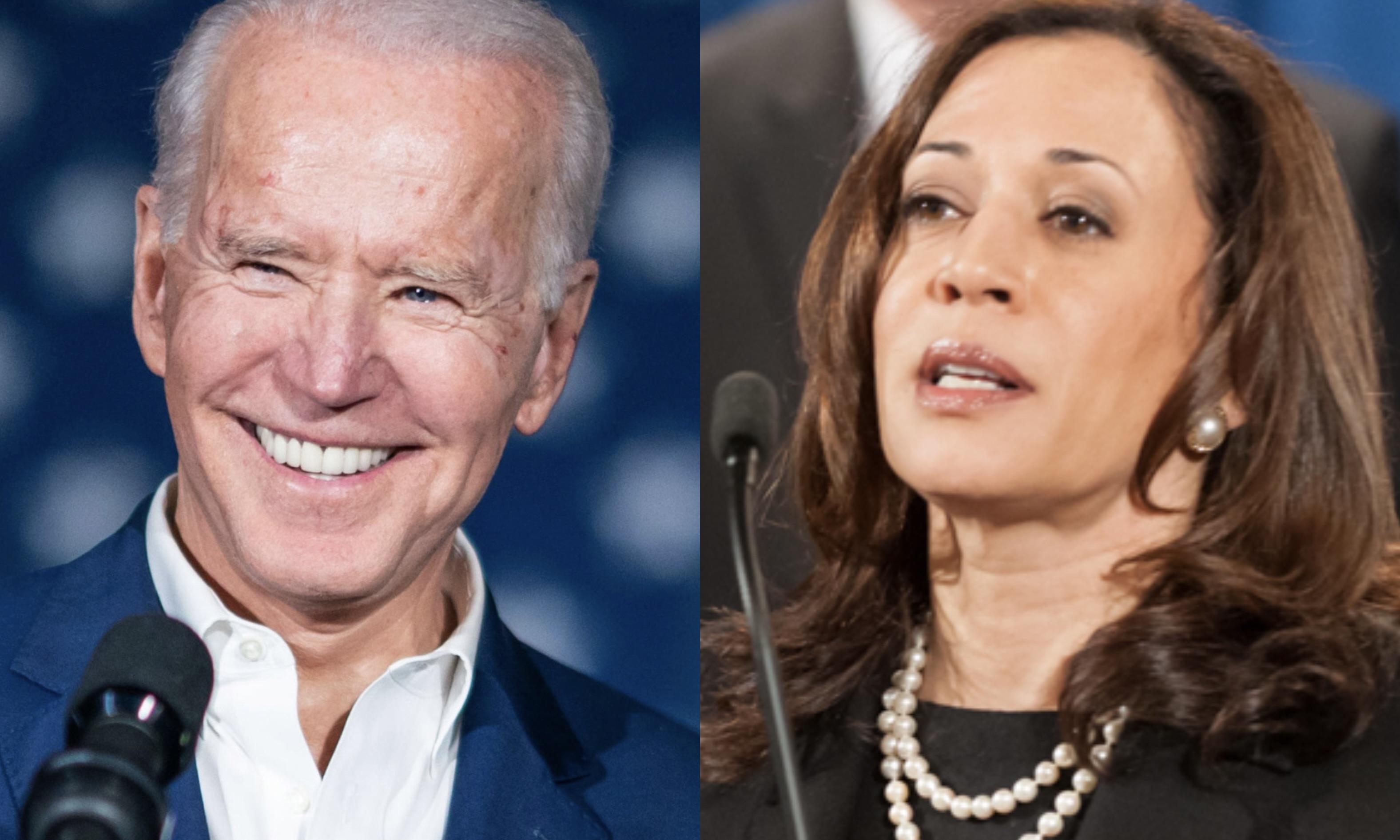A recent report from Axios has ignited fresh controversy in Washington, alleging that Vice President Kamala Harris's campaign team is intentionally keeping President Joe Biden off the campaign trail, labeling him a potential "political liability." The report hints at growing concerns within the Harris campaign over Biden’s impact on her chances, sparking widespread discussions among political insiders and further fueling speculation about potential rifts in the Democratic ranks.
According to sources cited by Axios, the decision to limit Biden’s campaign appearances stems from his waning popularity in certain key demographic groups. Harris's team, reportedly worried about the president’s influence on her image, has allegedly decided to keep him from making frequent public appearances alongside her. The same sources also claim that these concerns are particularly tied to Biden's approval ratings and the perception of him as increasingly out of step with younger and independent voters—critical segments Harris is believed to need to secure in her own bid.
“This isn’t just about optics; it’s about strategy,” a Democratic strategist familiar with the internal discussions shared with Axios. “Harris’s campaign knows it’s in a tricky position—how do you balance the support of a sitting president while acknowledging that he might be seen as a drag in certain circles?”
President Biden’s approval ratings have experienced fluctuations amid issues like inflation and economic uncertainty, and critics argue that he has become a polarizing figure even within his own party. For Harris’s team, this translates into a calculated approach: maintaining distance without publicly alienating the president. The balancing act highlights the tension of navigating party loyalty while managing the realities of public opinion.
Public reaction to the report has been swift and varied. Social media platforms lit up with debates, with some users voicing disappointment, arguing that the Harris campaign should fully embrace Biden’s support. Others, however, suggested that the strategy reflects Harris’s pragmatism. “It’s politics, not personal,” one commentator noted. “If her team thinks Biden could affect her image negatively, they’re just protecting her interests.”
While the report raises questions about Harris’s approach, some insiders believe the story might be exaggerated to generate buzz in an already highly charged election cycle. A Democratic aide who preferred to remain anonymous defended the Harris team, saying, “There’s no real distance; she’s still loyal to Biden. Campaigns evolve, and not every decision needs to be interpreted as a sign of discord.”
Yet, Republicans have quickly seized on the story, with high-profile figures calling the alleged distancing a “sign of weakness” in the Democratic ticket. “If Harris’s team is that concerned about the president, what does that say about their confidence?” a prominent GOP strategist remarked.
Whether the report will have lasting implications or fade as another campaign-season rumor remains uncertain. However, the story underscores the challenges Harris faces as she balances her identity as vice president with her own political ambitions. The “political liability” label Axios reported may remain a point of contention as both Democrats and Republicans analyze each campaign move leading up to election day.
In the coming weeks, Harris’s public engagements and Biden’s presence, or absence, on the trail will likely be closely scrutinized as both figures seek to present a unified image to voters while contending with the realities of today’s political landscape.



 Macron Urges Emergency UN Security Council Meeting as US-Israel Strikes on Iran Escalate Middle East Tensions
Macron Urges Emergency UN Security Council Meeting as US-Israel Strikes on Iran Escalate Middle East Tensions  Germany and China Reaffirm Open Trade and Strategic Partnership in Landmark Beijing Visit
Germany and China Reaffirm Open Trade and Strategic Partnership in Landmark Beijing Visit  Trump Launches Operation Epic Fury: U.S. Strikes on Iran Mark High-Risk Shift in Middle East
Trump Launches Operation Epic Fury: U.S. Strikes on Iran Mark High-Risk Shift in Middle East  EU Urges Maximum Restraint in Iran Conflict Amid Fears of Regional Escalation and Oil Supply Disruption
EU Urges Maximum Restraint in Iran Conflict Amid Fears of Regional Escalation and Oil Supply Disruption  Iran Supreme Leader Ayatollah Ali Khamenei Killed in Israeli, U.S. Strikes: Reuters
Iran Supreme Leader Ayatollah Ali Khamenei Killed in Israeli, U.S. Strikes: Reuters  Trump Warns Iran as Gulf Conflict Disrupts Oil Markets and Global Trade
Trump Warns Iran as Gulf Conflict Disrupts Oil Markets and Global Trade  Israel Declares State of Emergency as Iran Launches Missile Attacks
Israel Declares State of Emergency as Iran Launches Missile Attacks  Netanyahu Suggests Iran’s Supreme Leader Khamenei May Have Been Killed in Israeli-U.S. Strikes
Netanyahu Suggests Iran’s Supreme Leader Khamenei May Have Been Killed in Israeli-U.S. Strikes  Pentagon Leaders Monitor U.S. Iran Operation from Mar-a-Lago
Pentagon Leaders Monitor U.S. Iran Operation from Mar-a-Lago  Australia Rules Out Military Involvement in Iran Conflict as Middle East Tensions Escalate
Australia Rules Out Military Involvement in Iran Conflict as Middle East Tensions Escalate  Trump Announces U.S. Strikes on Iran Navy as Conflict Escalates
Trump Announces U.S. Strikes on Iran Navy as Conflict Escalates  Argentina Senate Approves Bill to Lower Age of Criminal Responsibility to 14
Argentina Senate Approves Bill to Lower Age of Criminal Responsibility to 14  Trump Says U.S. Combat Operations in Iran Will Continue Until Objectives Are Met
Trump Says U.S. Combat Operations in Iran Will Continue Until Objectives Are Met  Trump to Address Nation as U.S. Launches Strikes in Iran, Axios Reports
Trump to Address Nation as U.S. Launches Strikes in Iran, Axios Reports  U.S. Deploys Tomahawks, B-2 Bombers, F-35 Jets and AI Tools in Operation Epic Fury Against Iran
U.S. Deploys Tomahawks, B-2 Bombers, F-35 Jets and AI Tools in Operation Epic Fury Against Iran  Trump Floats “Friendly Takeover” of Cuba as Rubio Reportedly Engages in Talks
Trump Floats “Friendly Takeover” of Cuba as Rubio Reportedly Engages in Talks  Middle East Conflict Escalates After Khamenei’s Death as U.S., Israel and Iran Exchange Strikes
Middle East Conflict Escalates After Khamenei’s Death as U.S., Israel and Iran Exchange Strikes 































